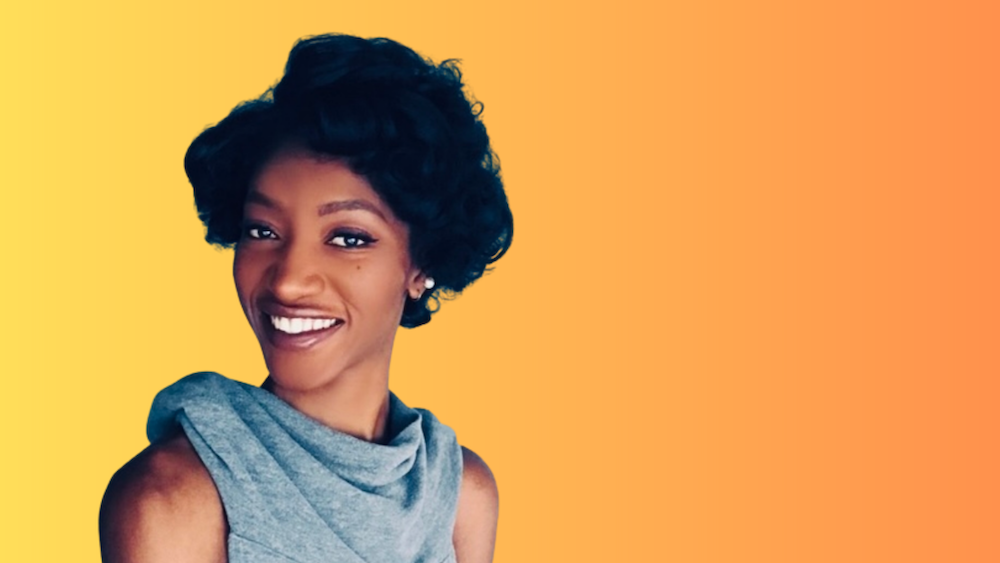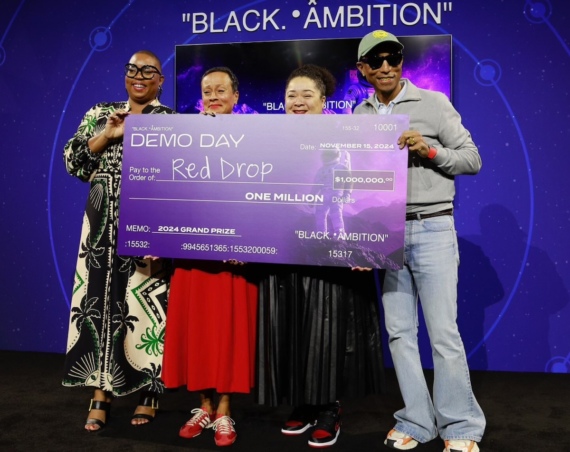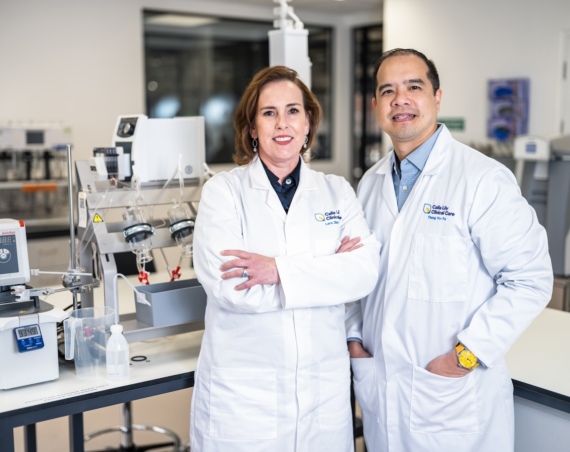Founder Q&A is an interview series showcasing founders of disruptive startups in the healthcare and women’s health innovation ecosystem.
In today’s Q&A you’ll hear from Toyosi Babalola is the CEO and Co-Founder of Abulé, a social care network that leverages the ancient wisdom of community-driven, value-based care, and the concept of trade by barter with powerful AI neural network algorithms. Babalola recently joined the second cohort of the City Fellowship program, a partnership between Company Ventures and the NYCEDC to help grow and scale social impact startups that will have a positive impact on the community.

Can you tell us more about what you’re working on at Abulé?
Abulé is a social care network that makes it easier to access community-based care. We provide three key benefits–on one platform!
- Community: Abulé connects people to their missing care tribes. We use powerful AI algorithms that act like neural networks to match people based on their values, experiences, lifestyle, and interests.
- Collaboration: Abulé is a scheduling and communication tool. We’ve taken the burden off finding learning activities, coordinating care tasks, events and sign ups, and conceal the awkwardness often associated with asking others for help.
- Creation: Abulé provides options for you to thrive where you are. With Abulé, you can offset some care costs, or earn a living. Our network rewards you for sharing your time or talents with others.
Families, communities, schools and organizations can all benefit from Abulé. I’m incredibly delighted because this changes the way we live, work, learn and experience care.
Where did the idea for Abulé come from? What problem are you solving?
Abulé means ‘Village’ and the word has its roots in my native language, Yoruba, from Nigeria. Motherhood was an inflection point for me. When I became a mom over 10 years ago, the nostalgic feeling of having community-based care like we did in Nigeria was amiss. Today, most families no longer live within the cities, adults need to work for a living, and the cost of childcare has skyrocketed! Therefore, it is impossible for most people to attain the elusive work-life balance–this I believe, is what has led to caregiver burnout.
How did you get started in this industry? What’s your background? And how far along are you in your startup journey?
I studied Computer Science in college and received an MBA from the University of Maryland. Over the past 20 years, I worked at world-renowned finance, management consulting, and aerospace companies–CITI, Booz Allen Hamilton and Lockheed Martin delivering quality work products to clients including the IRS and NASA. As glamorous as these may sound, my degrees and accomplishments rarely mattered to me when I found myself struggling to ‘do it all’ as a single mom. In 2017, I lost my tech job. Although finding the next job wasn’t nearly as difficult for me as it was impossible to attain the elusive ‘work-life balance’, I simply wasn’t ready to take on another. I wanted the flexibility to cater to my family, while having the freedom to fulfill my purpose and gain financial rewards. I needed to find my missing care tribe, a safe space that’ll enable me to tend to my physical, mental, emotional and financial health. So, I reinvented myself and rewrote my story. Now, we have built Abulé so that families can thrive!
What are you hoping to accomplish at Abulé over the next year? And what’s your long-term vision for the company?
Over the next year, we hope to serve at least 10,000 families. Our goal is to extend the caregiver role to include other community members so that no one is left to care for their loved ones alone or overwhelmed. To facilitate this, we’ve created our own digital currency, the CARE$ tokens, which will allow people to discreetly reward family, friends, and neighbors that step in to help. Our tokens can be purchased, earned, or gifted. Earned tokens may be saved for later use or cashed out as income earnings.
Our long-term vision is to build a global village that enables work-life harmony for all. Parents need to be adequately supported to work effectively and employers are looking for new ways to reduce turnover rates. I believe that the future of work is care, and the future of care is social. In the long run, everyone wins!
What are your biggest challenges as a founder and for Abulé?
The biggest challenge as a black female founder remains access to funding. Even with glaring market opportunities and domain expertise, we are still being overlooked.
A challenge for Abulé is changing people’s mindsets when it comes to care and the cultural shift that comes with that. The concepts of trading and value-based community care existed in ancient cultures. Through technology, we are reimagining care for today’s world.
There is also an under economy of caregivers that works hard to set the foundation for society to operate. We saw this foundation crack when the pandemic hit. We aim to help people see how critical the caregivers in society are, and we want to value them as such.
What trends in the healthcare innovation or women’s health space are you following?
One of the trends of interest to me is mental health, which often tends to be treated solely as a medical condition. I’d be curious to know if there are any companies considering the reduction in meaningful social interactions and human connectedness as an underlying cause, and what we can do to address it before it becomes an acute medical condition.



